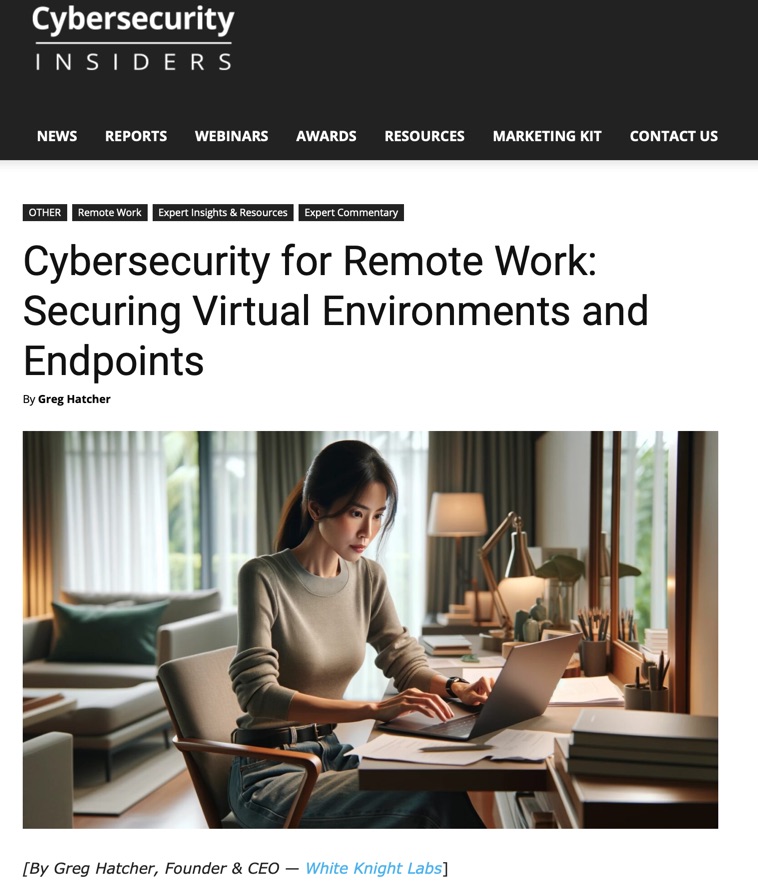In this article, Greg Hatcher, the CEO of White Knight Labs (WKL), delves into the cyber security challenges brought about by the steady rise of remote work. Necessitated by the COVID-19 pandemic but sustained by its unique benefits, remote work is projected to include 22% of the American workforce by 2025. However, transitioning out of traditional office settings into virtual environments introduces numerous cyber threats due to broader and less secured network endpoints.
Through this engaging piece, Hatcher unravels the various cybersecurity challenges linked with a remote setup, including threats caused by weak passwords, ransomware, file sharing, unsecured Wi-Fi networks, and personal device usage. He proposes several measures to ensure endpoint security for remote workers, such as strong password use, secured home networking, antivirus and internet security software, robust email security, and robust identity management and authentication protocols.
As cybersecurity becomes ever more critical with remote work, understanding and implementing these safeguards are not just preferences, but necessities. Hatcher’s detailed insights into this area are valuable for any organization conscious of its data security in today’s rapidly digitalizing business landscape.



